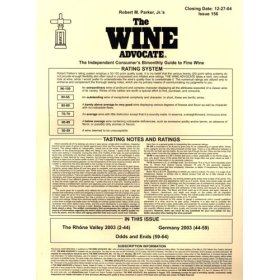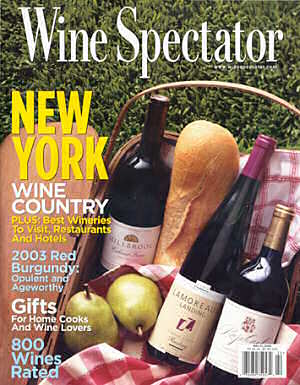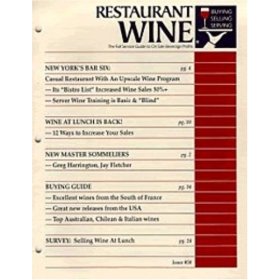Dr. Debs’ interesting post at Good Wine Under $20 about jargon got me thinking about the way we communicate about wine. Her point to ponder was whether “jargon (technical terms about wine), dialects (terminology common to a group of wine writers), and idiolects (terms that a single wine writer comes up with; if sufficiently popular, idiolects can get shared and become dialects)” actually obstruct our ability to communicate about wine.
Jeff’s post on Good Grape got the old wheels churning even harder; for him, Dr. Deb’s post dovetailed with a magazine article in Sante that he read about how menu descriptions affect how we eat in restaurants. As Jeff sums it up, a dish that’s more elaborately described on the menu will be described by those who’ve eaten it as “more appealing, tastier and the restaurant as being trendier and more contemporary.”
This would seem to argue, then, for more elaborate tasting notes, rather than less. If we are trying to get more Americans drinking wine (and we are; you’ll thank us when you’re older), then hopefully by introducing it in elaborate, flowery language will make everyone have better, fonder memories of their wine drinking experiences… and thus drink more wine.
As you may know, if you’re a regular here at the Wine Scamp, elaborate is not a problem for me. And as I commented on Dr. Deb’s site, one of the reasons I love wine so much is that gorgeous juxtaposition of sensation and language that is the tasting note. My first love being poetry, I have always been fascinated by our attempts to communicate the indescribable; emotions and sensations are so subjective that the attempt to encapsulate them in words seems almost impossible. So things get fancy, words get outlandish, and jargon and dialects are born.
Seems like the perfect opportunity for a Friday poll, which I can’t seem to get to work in this post, but which you can vote on in the sidebar to your right. Sound off!


